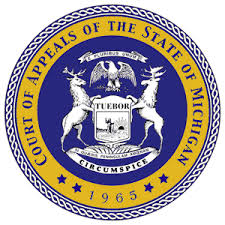Originally published on Forbes.com.
The IRS does not seem to have any problem recognizing Hope Network Rehabilitation Service as a charity. The assessors in Kentwood, Michigan had a different view. The recent decision in the Michigan Court of Appeals went with the assessors. The case illustrates the principle that property tax exemption can be much more challenging to achieve than recognition as a 501(c)(3) organization.
Hope Network Rehabilitation Service, according to its most recent 990 available on guidetstar for the year ended September 30 2010. received $163,301 in donations, which seems substantial until you compare it to $19,001,926 in program service revenue. Hope Network is a Christian organization that empowers people with disabilities or disadvantages to achieve their highest level of independence. When the federal government looks at Hope Network it looks at what it is doing and whether there is any private inurement. If Hope has a valid exempt purpose and nobody is lining their pockets, it is good to go as a 501(c)(3).
So when the Hope opened an adult day care facility called Forest Glen in the city of Kentwood, it might seem that the facility’s exemption from property taxes would be a foregone conclusion. The facility had the capability to house up to six residents and provided them specialized care required to recover from spinal cord and similar injuries. Not so foregone as it turns out. When you go to play the exemption game with local assessors federal tax exempt status is just table stakes. You need more to have a winning hand. Perhaps it is that property tax exemptions hark back to earlier models of charitable organizations.
An older view of charitable institutions was that people of means would provide the institution with resources and that the institution would then provide services to those in need with no charge. That model is less common nowadays. I’ve worked with a lot of not-for profits both professionally and as a volunteer and my observation is that advocacy not for profits mainly subsist on donations but that service oriented not for profits often have a fee for service model. The person receiving the service is not often the one paying. Typically it is a governmental entity. They don’t quite fit the classic model of charity. That generally does not give such organizations any problem obtaining exempt status for federal income taxes, even the most cherished 501(c)(3) status.
Property tax exemptions are governed by state law and administered at a local level, so there is a lot of variation. One phenomenon is that fairly common is for assessors to be hesitant to hand out exemptions. Local property tax is a zero sum game. A local budget is divided by total valuation to arrive at a rate. If you remember your fourth grade math, you will recall that lowering the denominator (total valuation) increases the fraction (tax rate). If your property gets excluded everybody else picks up the slack.
At any rate when the Kentwood, Michigan assessors looked at the Hope Network facility, they did not see anything charitable going. That’s because everything that was going on there was being paid for by insurance companies. Hope Network had a scholarship fund, but that was never used. They also wrote off receivables for amounts not covered by the insurance companies. That was viewed as a business practice rather than charity. If writing off receivables was charitable, I would probably be a major philanthropist, much to the chagrin of a series of managing partners who were afflicted with me.
Hope Network tried to argue that the Tax Tribunal, whose decision affirming the assessors was being appealed, was not looking at the big picture:
Petitioner argues that the Tribunal misapplied the statute by focusing on the activity at Forest Glen. It argues that petitioner, even by the admission of the respondent city, is organized primarily for charitable purposes and that so long as Forest Glen is operated as a residential care facility it is entitled to an exemption from taxation.
The Court was not buying it.
…… the statute demands, that it be proven that the property for which an exemption is sought be used solely for the charitable purpose. …
Here, petitioner provided no proofs of ever admitting a patient to Forest Glen without expectation of payment, or for caring for a Medicare or Medicaid patient at the facility. Petitioner asserted the existence of a scholarship fund which was unfunded and never used at Forest Glen. The Tribunal did not err in finding in this instance that the $75,000 write-off was a business practice and not a charity.
The main lesson here is that institutions need to consult with state and local tax experts (SALT) when building, since the federal exemption only goes so far.































































































